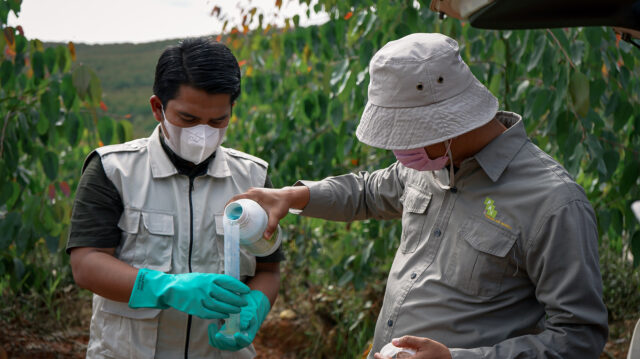
Accelerating sustainable agriculture in Indonesia has become a priority given the oversized impact it has on the climate crisis. It is responsible for almost 30 percent of all greenhouse gases released annually. This fact has not been lost on Pandawa Agri Indonesia (PAI), a life science-based company focused on pesticide reductants.
“Agriculture is one of the largest sectors in Indonesia and it plays a critical role in the climate crisis, generating 19-29 percent of the global GHG emissions. Last year, we contributed to reducing nearly 5,000 tons of carbon dioxide emissions as a result of minimizing pesticide use,” Kukuh Roxa, Pandawa Agri Indonesia CEO, said. “This is in line with Indonesia’s Enhanced Nationally Determined Contribution target to reduce carbon emissions by 31.89 percent with our own efforts and 43.2 percent with international assistance in 2030.”
Also Interesting: Indonesian recycling firms receive funding in efforts to combat plastic waste
In order to fully accelerate sustainable agriculture in Indonesia, PAI recently unveiled a framework designed to transform the industry. Key areas of focus include protecting the environment, prospering the people and promoting responsible business practices.
“Our utmost priority is to transform agriculture practices to become more sustainable and environmentally friendly by developing breakthrough technologies focused on building climate resilient agriculture, alleviating pressure on the environment, and producing higher yields at the highest standard possible,” Kukuh stated.
But the framework is only one way PAI is aiming to accelerate sustainable agriculture. In a recent report, the company explore the impact its Environmental, Social, and Governance principles were having on the transition of Indonesian farming into a more sustainable sector.
For starters, the firm helped in reducing pesticide usage by more than 1.5 million liters over two million hectares of plantations in Indonesia and Malaysia. Additionally, its reach out to smallholders helped in the creation of a sustainable agricultural ecosystem at the grassroot level. PAI estimates smallholders leveraging its innovations had an increase in crop productivity of up to 53 percent.
“We create an end-to-end smallholder ecosystem: in the upstream we facilitate farmers with technology and climate-smart agriculture approach in managing the cultivation, and in the downstream we assist the farmers with integrated post-harvest management. Currently, we have developed an ecosystem of rice farmers in Nagekeo, coffee growers in Pagar Alam, and chili farmers in Banyuwangi,” Kukuh pointed out.
Keep Reading: Smart rice? Advancements try to modernize farming in Asia

































